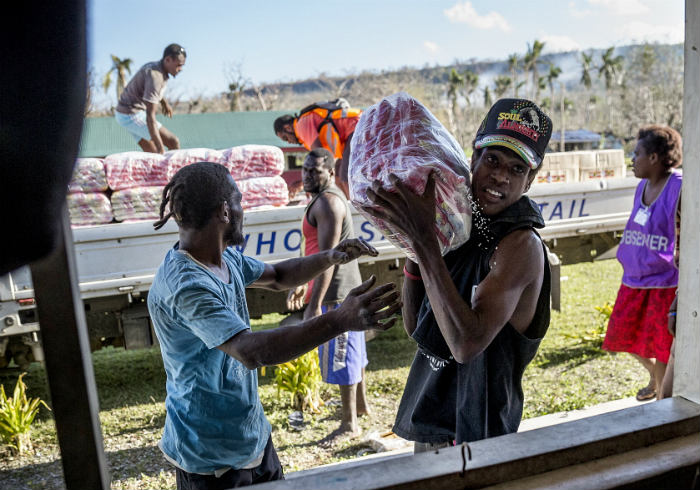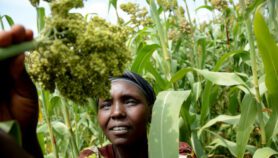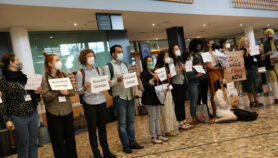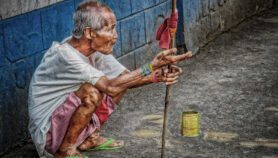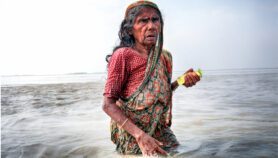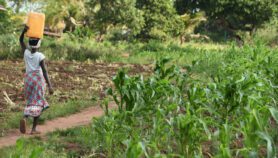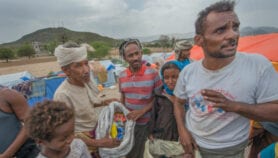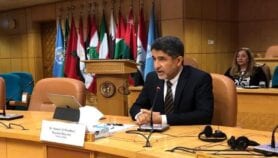By: Inga Vesper
Send to a friend
The details you provide on this page will not be used to send unsolicited email, and will not be sold to a 3rd party. See privacy policy.
Overseas development assistance is a double-edged sword. It pays for essentials, such as education, health or shelter for the poorest people in the world. But it also makes governments aid dependent and releases them from their responsibility to care for their citizens.
Either way, ODA tends to emphasise differences in economic wealth and political development between countries, and often smacks of elitism and do-goodery without addressing underlying problems in the recipient countries.
Because of such criticism, many rich countries want to move away from it and build more equal and viable partnerships with developing countries.
In July, the world will come together in Ethiopia’s capital, Addis Ababa, to hammer out a new deal for financing development. This will cover various financing methods — including private companies, loans, coinvestment and raising more taxes. It is meant to cause a shift away from ODA towards more equality between donors and recipients.
It sounds like a sweet deal, and at the launch of the European Report on Development 2015 in Brussels, Belgium, on Monday, rich country representatives praised the pending Addis Ababa agreement as a crucial step towards eradicating poverty.
But they were in for a surprise. The representatives from poorer countries, it seemed, are not interested.
Abraham Tekeste, the Ethiopian finance minister, made clear what he wanted to prioritise in Addis Ababa. “If there’s no commitment from developed countries to spending more on ODA, the agreement is at risk,” he told the meeting. “We recommend increasing ODA.”
One participant from South Asia said that, for some leaders of developing countries, the thought of less ODA and more partnership is unattractive. He said that in Bangladesh, for example, the amount of money spirited away by government officials and industry bosses through tax evasion every year is higher than the country’s annual ODA. Therefore, officials have no interest in, for example, tackling tax evasion, but are keen on keeping up the aid flow, he said.
If there’s no commitment from developed countries to spending more on ODA, the agreement is at risk
Abraham Tekeste, Ethiopian finance minister
Other representatives expressed their concern that the ever-widening definition of ODA has funnelled more of such funding into middle income countries, leaving less for the poorest. With spending on climate mitigation technology and the care for migrants in Europe increasingly being labelled as ODA, any thought of reducing such spending further will leave even less for those who need it most, said another participant.
European Union representatives at the meeting, however, reasserted that the days of ODA as the main means for fostering development are numbered. Instead, better policies, more accountability on both sides and ‘spending blending’ — where ODA is mixed with or tied to loans and national funding from recipient countries — are the way forward, they said.
This dissonance between rich and poor countries about what constitutes good and desirable development financing left a bitter taste in the mouth of those optimistic about Addis Ababa. Unless a compromise can be found between demands for more ODA and proposals for the greater prominence of alternative finance models, a common agreement on future development finance seems unlikely.
Fortunately, one such compromise proposal was offered by Homi Kharas, deputy director of the Global Economy and Development Program at the Brookings Institution, a policy NGO in the United States. He said that rich countries need to rethink their definition of ODA and limit spending to the most urgent issues in the poorest countries.
Kharas flagged up that there are 130 countries which are neither donors nor recipients of ODA, but prospering lower-middle income countries that would benefit from exactly the kind of multipronged financing approach rich countries are proposing. Instead of applying a blanket rule to development assistance, rich countries should “pay more attention to what’s happening at country level”, and tailor their development support accordingly, he said.
The European Commission paid for Inga Vesper’s travel to the report launch.


